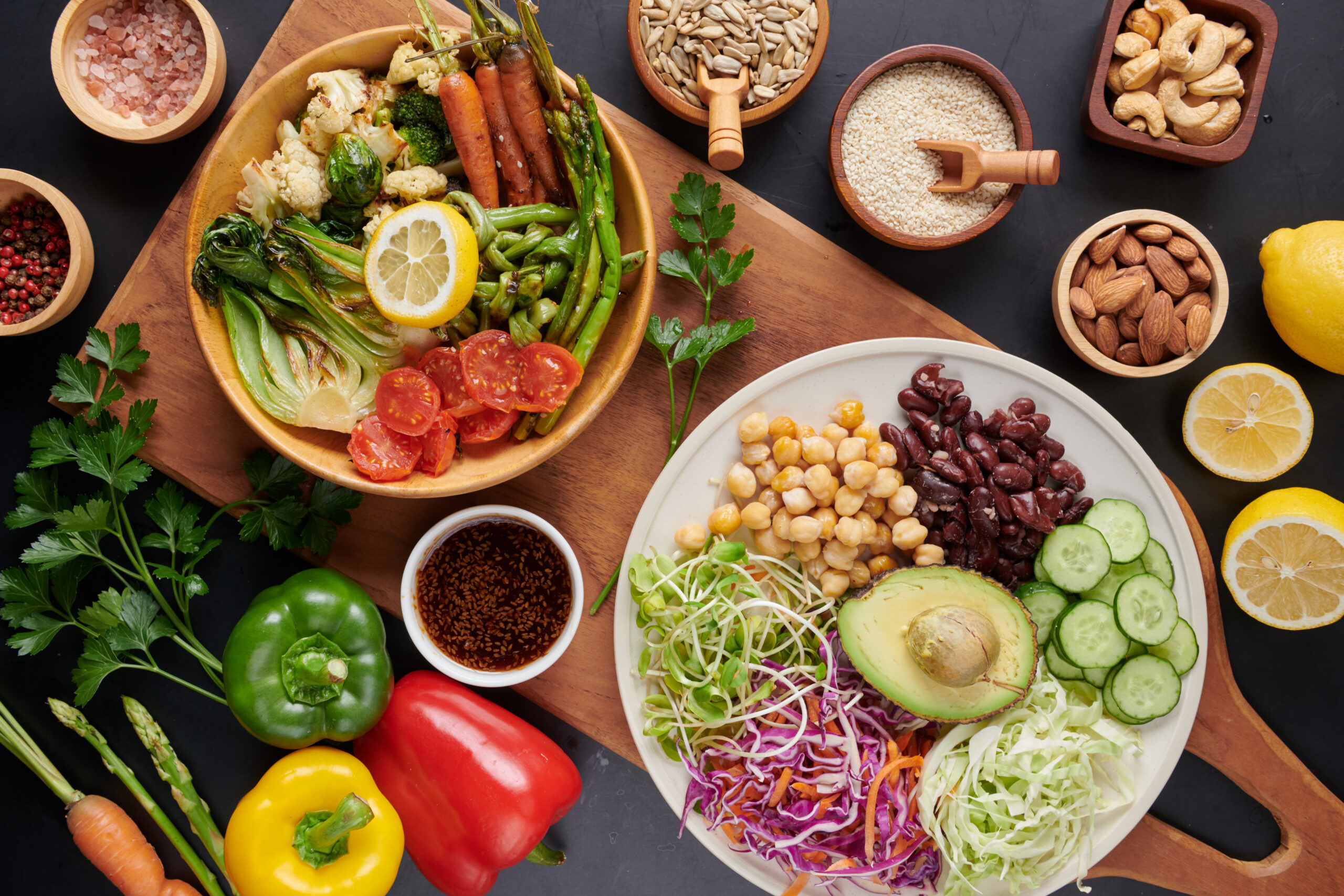
Meat-Free Muscle: Building Strength on a Vegetarian Diet
The Rise of Vegetarian Diets in Fitness
In recent years, there has been a significant shift in the fitness world, with more athletes and fitness enthusiasts embracing vegetarian diets. The concept of building muscle on a vegetarian diet has become increasingly popular as people recognize the health and ethical advantages of cutting meat from their meals. This trend is supported by various studies and testimonials from athletes who have successfully achieved meat-free muscle gains.
One of the primary reasons for this shift is the growing awareness of the environmental impact of meat production, as well as the potential health benefits associated with a vegetarian diet. Athletes are finding that they can maintain, and even build, muscle without consuming animal products. The increasing availability of plant-based protein sources is a key factor in this transition, providing the necessary nutrients to support muscle growth.
Moreover, the notion that a vegetarian diet is lacking in protein has been debunked. Legumes, nuts, seeds, and dairy products offer ample protein, and when combined correctly, they provide all essential amino acids needed for muscle repair and growth. This realization has empowered many to adopt a vegetarian lifestyle while pursuing their fitness goals.
Prominent athletes, such as Venus Williams and Carl Lewis, have shown that building strength on a vegetarian diet is not only possible but can also enhance performance. This has inspired others to consider the benefits of meat-free muscle building, challenging the traditional views on dietary needs in sports.
Key Nutrients for Vegetarian Muscle Building
When it comes to building muscle on a vegetarian diet, understanding and incorporating key nutrients is crucial. Protein is the most obvious nutrient, but others play vital roles in muscle repair and overall health. Ensuring an adequate intake of protein-rich foods such as quinoa, lentils, chickpeas, and tofu is essential for meat-free muscle growth.
Iron is another crucial nutrient, as it’s necessary for oxygen transport in the blood, which is vital during workouts. Vegetarian sources of iron include spinach, kale, and fortified cereals. Combining these with vitamin C-rich foods can enhance iron absorption, ensuring that the body gets enough to support vigorous exercise routines.
Calcium and vitamin D are also important for bone health, especially when engaging in strength training. Non-dairy sources like fortified plant milks, almonds, and leafy greens can provide these nutrients effectively. Lastly, omega-3 fatty acids, found in flaxseeds and chia seeds, support cardiovascular health and reduce inflammation, which is beneficial for recovery after intense workouts.
By focusing on a diet rich in these key nutrients, individuals can successfully build muscle and maintain their fitness on a vegetarian diet. With careful planning and a diverse range of foods, meat-free muscle is an achievable goal.
Creating a Balanced Vegetarian Meal Plan for Strength
Developing a vegetarian meal plan for building muscle involves more than just ensuring sufficient protein intake. A balanced diet includes a variety of nutrients that work together to support overall health and muscle development. Carbohydrates, for instance, are vital for energy, especially during workouts, and should be included in every meal.
Start your day with a breakfast rich in complex carbohydrates and protein, such as oatmeal topped with nut butter and fresh fruit. For lunch, a hearty salad with chickpeas, quinoa, and a variety of vegetables will provide a balanced mix of nutrients. Dinner might include a tofu stir-fry with brown rice and plenty of colorful veggies to ensure a range of vitamins and minerals.
Snacking is another opportunity to fuel your body. Opt for protein-rich snacks like Greek yogurt or a handful of nuts and seeds. Remember that hydration is crucial, so drink plenty of water throughout the day to keep your muscles functioning optimally.
By meticulously planning meals and snacks, individuals can ensure they are getting the necessary nutrients to support muscle growth while adhering to a vegetarian diet. This approach not only aids in building meat-free muscle but also promotes overall wellness.
Overcoming Challenges of a Vegetarian Muscle-Building Diet
While building muscle on a vegetarian diet is entirely feasible, it does come with its challenges. One of the main concerns is ensuring enough protein intake, especially for those who are new to a vegetarian lifestyle. It’s important to explore a variety of plant-based protein sources and to be mindful of combining them to achieve a complete amino acid profile.
Another challenge is the potential for nutrient deficiencies. For instance, vitamin B12, primarily found in animal products, is essential for energy metabolism and can be supplemented in vegetarian diets. Keeping an eye on B12 levels is crucial for avoiding fatigue and supporting muscle-building efforts.
Social situations can also be a challenge when adhering to a vegetarian diet, particularly in cultures where meat is a staple. Preparing in advance by bringing your own protein-packed vegetarian dish to gatherings or researching vegetarian options at restaurants can help navigate these situations smoothly.
By addressing these challenges with strategic planning and supplementation when necessary, individuals can effectively pursue a vegetarian muscle-building diet without compromising their fitness goals.
Conclusion: Embracing Meat-Free Muscle Building
Building muscle on a vegetarian diet is not only possible but also beneficial in many ways. By focusing on a variety of nutrient-rich foods and strategic meal planning, individuals can achieve their fitness goals while adhering to a vegetarian lifestyle. The rise of plant-based eating among athletes and fitness enthusiasts serves as a testament to the efficacy of this approach.
As more people recognize the environmental and health benefits of a meat-free diet, the trend of building strength on a vegetarian diet is likely to continue growing. Embracing this lifestyle can lead to improved overall health, enhanced athletic performance, and the satisfaction of aligning dietary choices with personal values.